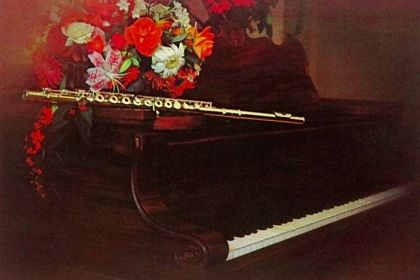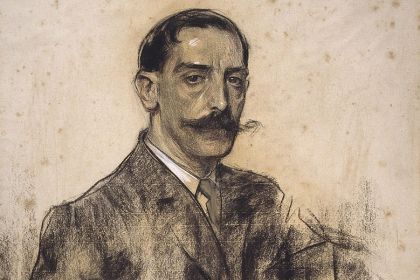PIANO
Scandalous piano experiments by George Antheil shocked early avant-garde scene

George Antheil
George Antheil was an American pianist and composer whose extraordinary works are mainly associated with the avant-garde scene of the first half of the 20th century. From the very beginning of his versatile career, he gained a rather scandalous reputation for trying to imitate mechanical and industrial sounds on a completely unusual set of musical instruments.
Parisian performances of his most famous work, Ballet Mécanique, had led to such strong emotions within his audience, they had poured into riots in the streets the scale of which any punk rock star would envy. To orchestrate this unbearably loud “ballet,” the composer used 16 pianolas (reproducing piano), 2 regular pianos, 3 xylophones, 7 electric bells, 3 airplane propellers, war siren, 4 bass drums, and 1 tam-tam.
According to the autobiography of George Antheil, he was so obsessed with music that his mother was forced to send him to the countryside where there was no piano, but the young musician nevertheless found a way to order the delivery of a new instrument at a local music store. The composer accepted his particular passion for avant-garde and futurism as a child, explaining this with the influence of a noisy machine shop and an ominous prison located near his home.
As a pianist, George Antheil had a particularly expressive technique, leading to frequent injuries to his hands, which explains his mother’s desire to send his son away from the piano. It is reported that at his early concerts Antheil often took a gun out of his pocket and put it on the piano to emphasize the rebellious spirit of his music.
Listen to George Antheil's Valentine Waltzes Part 1 performed by the composer himself:
Eventually, George Antheil somewhat cooled to the avant-garde trends, demonstrating more classical writing with the influence of late Romanticism, modern American music, and jazz. He moved to Hollywood where he wrote around 30 full scores but criticized the industry for its hostility to modern music, describing most background scores as "unmitigated tripe".



